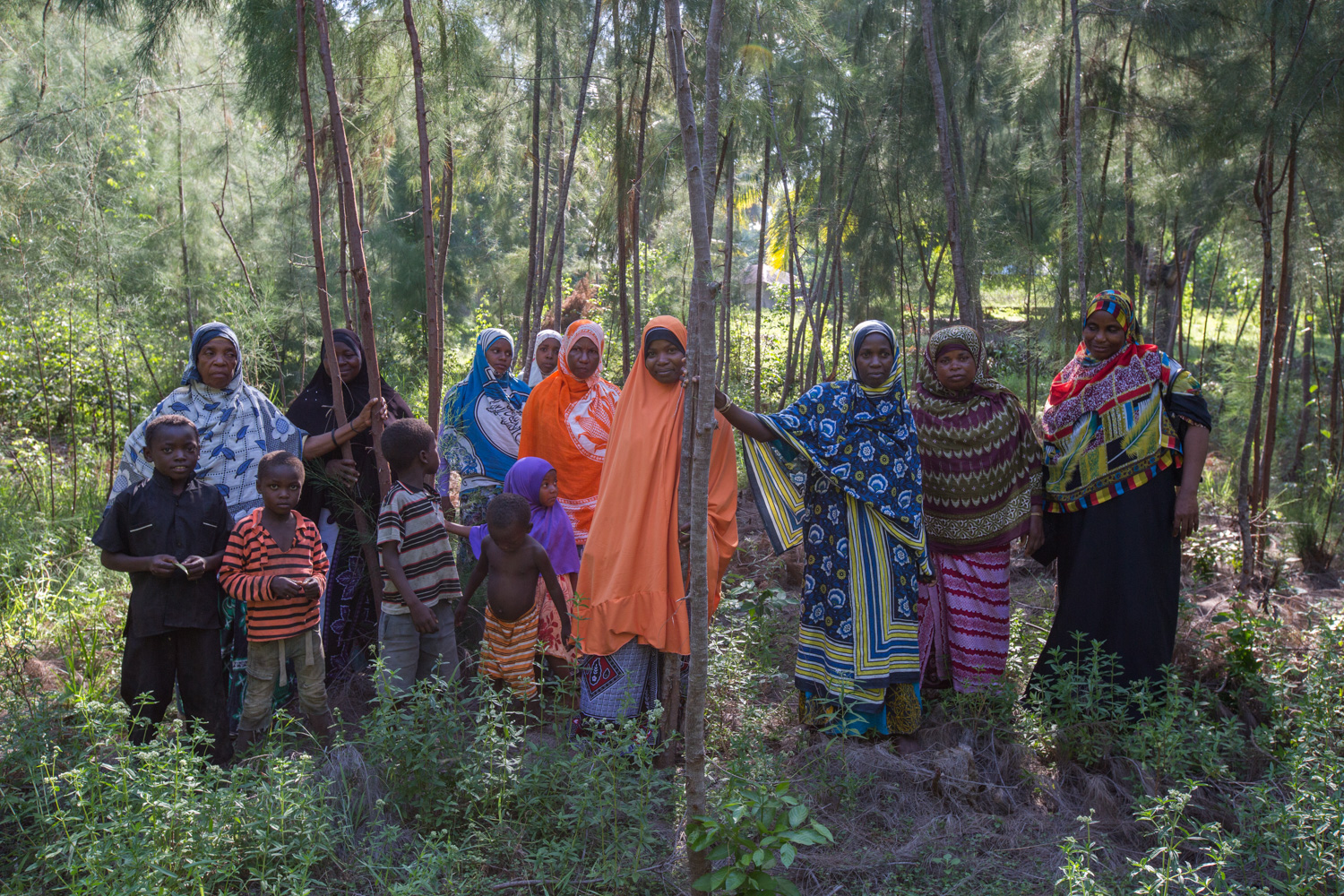Case-study /
Scalable Resilience: Outspreading Islands of Adaptation

Proof of Concept
In 2011, Community Forests International (CFI) began implementing an action supported by the Global Climate Change Alliance (GCCA) in Tanzania titled the Resilient Landscapes for Resilient Communities (RLRC) project. Through the initiative 5 vulnerable Pemban villages piloted a number of integrated climate change adaptation activities including: forest restoration; diversified agriculture; community land tenure; charcoal substitutes; rainwater harvesting; sustainable building; and alternative energy generation. Four years on, the lead communities are now emerging as regional models of climate change resilience and CFI is working to scale up the approach to 18 additional communities throughout Pemba. The organization is also working to share sucessful climate change adaptation innovations regionally and internationally through a newly establsihed Rural Innovation Campus.
Methods and Tools
The Scalable Resilience project is designed to incentivize adaptation by pairing new livelihood opportunities with innovative adaptation technologies and enterprises.
The key stakeholder groups are women, rural farmers and regional and national government institutions. CFI’s newly established Rural Innovation Campus located on Pemba Island is designed to serve the needs of these stakeholders and foster peer-to-peer innovation and sharing of successful climate change adaptation measures.
Specific objectives include: 1) implement 12 adaptive and appropriate technologies; 2) build capacity for community-led adaptation action and innovation; 3) engage all levels of society including government in project activities; and 4) disseminate scalable solutions regionally, nationally, and internationally.
The project activities have been aggregated under 4 key result areas, which correspond directly to the project’s specific objectives:
- Appropriate Technological Innovation;
- Community-Based Climate Change Adaptation Capacity Building;
- Government Engagement in Adaptation; and
- Knowledge Management and Communication.
1. Appropriate Technological Innovation
CFI has piloted several low-cost, gender-oriented appropriate technology activities including: Agroforestry; Afforestation and Reforestation; Rainwater Harvesting; Charcoal Substitutes; Fuel Efficient Cook Stoves; Interlocking Compressed Stabilized Earth Block (ICSEB) Construction; Multi-strata Kitchen Gardens; Sustainable Beekeeping; and Renewable Energy Generation. These successful innovations will be replicated widely through the Scalable Resilience action. In addition, CFI will also pilot 3 new adaptive technologies including: Community-Based Catchment Conservation; Improved Charcoal Production System (ICPS); and Spice Forest Polyculture.
2. Community-Based Climate Change Adaptation Capacity Building
CFI recognizes that building the adaptive capacity of vulnerable communities requires technical, economic, legal, social, and physical resource development. CFI will provide formal adaptation livelihood training sessions aligned with each appropriate technology activity described above. CFI will lead community-based natural resource management planning and legal land security activities to provide the social and legal frameworks necessary for communities to make long-term investments in adaptation.
3. Government Engagement in Adaptation
CFI maintains pre-existing partnerships with government institutions and will redouble engagement efforts with a focus on climate change mainstreaming including tailored technical workshops for government staff and strategic Memoranda of Understanding with government Ministries.
4. Knowledge Management and Communication
CFI will facilitate the free exchange of project experience and information through a multimedia communication plan that includes web videos, documentary, and research publications. These resources will be made freely available as they are produced through the organization’s website here: www.forestsinternational.org
